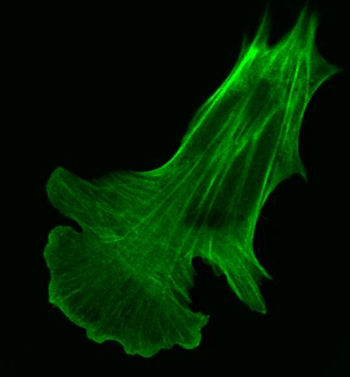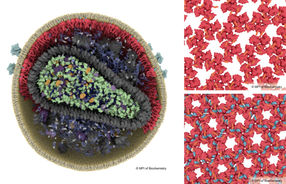Diabetes genes in South Asians discovered by Imperial College
Six new genetic variants will help identify diagnostic markers and drug targets for the 55 million Asian’s affected
An international team of researchers led by Imperial College London has identified six new genetic variants that could potentially be the causative agents of type 2 diabetes in South Asian populations (Pakistani, Indian, Bangladeshi, and Sri Lankan). The findings published in Nature genetics, give scientists new leads in the search for diagnostic markers and drug targets to prevent and treat this major disease - which has reached endemic proportions within the South Asian populations and affects some 400 million people worldwide.
People of South Asian ancestry are up to four times more likely than Europeans to develop type 2 diabetes, which is a major risk factor for heart disease and strokes. Around 55 million South Asian people are affected worldwide, and the number is projected to rise to over 80 million by 2030. It is envisaged that Imperial’s groundbreaking research will be the starting point to develop a set of universal markers, whereby those in high-risk groups could be screened and treated earlier for this deliberating condition - potentially limiting the disease’s impact and ultimately saving lives.
Though lifestyle and environmental factors remain important in determining type 2 diabetes in these populations, recent findings show strong genetic links.
This new study is the first to focus on genes underlying diabetes amongst people originating from South Asia (India, Pakistan, Sri Lanka and Bangladesh). The researchers from around the world examined the DNA of 18,731 people with type 2 diabetes and 39,856 healthy controls. The genomes of the participants were analysed to look for locations (loci) of DNA sequences where variations were more common in those with diabetes. The results identified six positions where differences of a single letter in the genetic code were associated with type 2 diabetes, suggesting that nearby genes have a role in the disease.
Dr John Chambers, the senior author of the study, from the School of Public Health at Imperial College London, said: "Type 2 diabetes is more common in South Asian populations than any other ethnic group, but the reason for this increased risk is unclear. Although lifestyle factors such as unhealthy diet, physical inactivity and obesity are important causes of diabetes in South Asians, these are only part of the explanation. Genetic factors have been widely considered to play a role in the increased risk of type 2 diabetes in Asians, but to date have not been systematically explored in this population."
"Our study identifies six new genetic variants linked to type 2 diabetes in South Asians. Our findings give important new insight into the genes underlying of diabetes in this population, which in the long term might lead to new treatments to prevent diabetes."
Professor Jaspal S Kooner, from the National Heart and Lung Institute at Imperial College London, the lead author for the study said: "This is the first genome-wide association study in South Asians, who comprise one-quarter of the globe's population, and who carry a high burden of the disease and its complications, including heart attack and stroke. We have shown that the genetic variants discovered here in South Asians also exist and contribute to diabetes in Europeans. Our studies in Asians and European populations highlight the importance and gain in examining the same problem in different ethnic groups."
Most read news
Organizations

Get the analytics and lab tech industry in your inbox
By submitting this form you agree that LUMITOS AG will send you the newsletter(s) selected above by email. Your data will not be passed on to third parties. Your data will be stored and processed in accordance with our data protection regulations. LUMITOS may contact you by email for the purpose of advertising or market and opinion surveys. You can revoke your consent at any time without giving reasons to LUMITOS AG, Ernst-Augustin-Str. 2, 12489 Berlin, Germany or by e-mail at revoke@lumitos.com with effect for the future. In addition, each email contains a link to unsubscribe from the corresponding newsletter.
More news from our other portals
Last viewed contents

Max Planck Innovation awards license for actin marker LifeAct - Max Planck Innovation and ibidi sign license agreement for cytoskeleton research



























































